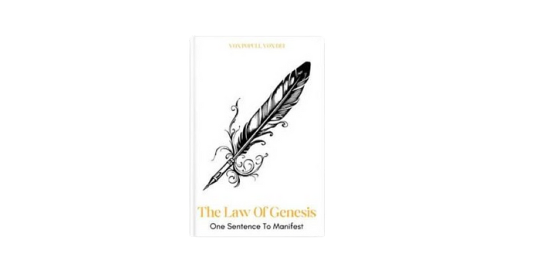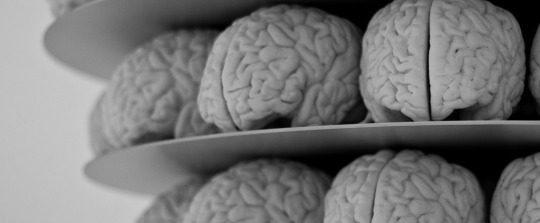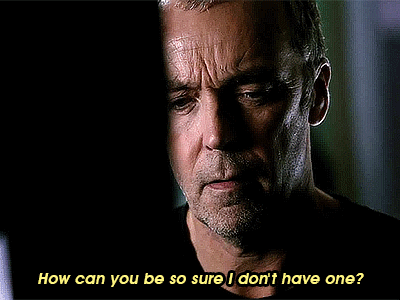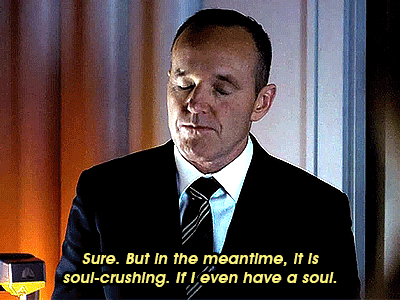#metaphysical determinism
Explore tagged Tumblr posts
Note
okay so. clearly MPD Logan did not actually need luck magic to ask Virgil out. but I'm curious: did the sigil help with anything surrounding the request? maybe make Virgil a bit less likely to psych themselves out when they replied, or make Logan a bit more confident?
there was a small chance of virgil getting so flustered he either ran away or said something absolutely off the wall random. "female common house spiders can lay as many as 250 eggs in one sack and over the course of their life may lay up to 4000" random.
20 notes
·
View notes
Quote
Whatever concept one may hold, from a metaphysical point of view, concerning the freedom of the will, certainly its appearances, which are human actions, like every other natural event are determined by universal laws.
Immanuel Kant, Idea for a Universal History with a Cosmopolitan Purpose
#philosophy#quotes#Immanuel Kant#Idea for a Universal History with a Cosmopolitan Purpose#causes#causality#appearances#free will#metaphysics#determinism
66 notes
·
View notes
Text
The Nature of Control — A Philosophical and Spiritual Investigation - Post 1 of 5
The concept of control is both universally recognised and deeply elusive. Photo by JESHOOTS.com on Pexels.com From the mundane attempts to manage daily tasks to the profound philosophical reflections on the nature of existence, control underpins much of human endeavour. Yet, as we grapple with its meaning, we quickly realise that control is not a single, monolithic idea but a multifaceted and…

View On WordPress
#adhiṭṭhāna#agency#Amor Fati#anicca#Aristotle#Bandura#biopower#Buddhism#collective agency#collectivism#Confucianism#consciousness#control#Dao De Jing#Daoism#Descartes#determinism#eph’ hêmin#epistemology#ethical implications#free will#hegemonikon#hekousion#individualism#Laozi#Libet#locus of control#logos#meditation#metaphysics
2 notes
·
View notes
Text
Zoomposium with Prof. Dr. Brigitte Falkenburg “Myth Determinism or the limits of brain research”

1. Information about the person
In another very exciting interview from our Zoomposium themed blog “Erkenntnistheorie und Philosophie des Geistes”, Axel and I speak this time with the German philosopher and physicist Brigitte Falkenburg. From 1997 to 2019, she was Professor of Theoretical Philosophy with a focus on Philosophy of Science and Technology at TU Dortmund University.
She is a member of the Interacademic Commission “Leibniz-Edition” and the Board of Trustees of the “DRZE” (German Reference Center for Ethics in the Life Sciences) as well as a corresponding member of the “North Rhine-Westphalian Academy of Sciences, Humanities and the Arts”.
Her research covers topics of philosophy of nature, philosophy of science and philosophy of physics as well as modern metaphysics, epistemology and philosophy of technology. She has already published a number of well-known publications on these topics, which are only mentioned here as examples:
“Die Form der Materie. On the Metaphysics of Nature in Kant and Hegel” (1987), ”Particle Metaphysics. On the conception of reality in the philosophy of science and microphysics” (1994) and ”Mythos Determinismus. How much does brain research explain?” (2012). The latter book was published in 2024 as a completely revised and updated 2nd edition.
All the more reason for us at Zoomposium to interview her on the subject of this very readable book.
More at: https://philosophies.de/index.php/2025/02/19/mythos-determinismus/
or: https://youtu.be/P3Vf64QFg0U
#philosophy#consciousness#neuroscience#philosophy of mind#philosophy of science#metaphysics#determinism#brain research
2 notes
·
View notes
Text
you know what my problem is with the death note (book)?
it's the use of the line "dies by heart attack." the timeline of a heart attack can stretch from 20 minutes to having symptoms for several days. you might as well say "dies by cancer" because the moment of death of both are meaningfully Very Far Away from 6 minutes and 40 seconds. in fact, i think cancer was a direct example of ways you Cannot kill someone with the death note (sans pre-existing conditions e.g. aiber???).
you can't even argue that oh, 6:40 indicates the Moment of death because in order for someone to Die from the heart attack they would've needed to be Having it at least 13 minutes ago for a Severe heart attack!!!!
the best evidence of this is when ryuk writes light's name (at least in the anime i'm not there in the manga yet). the fact he dies At 6 minutes and 40 seconds is part of the whole pathos of the scene!!!
i'm 1000% sure o&o mean to say cardiac arrest. god damn, is this a translation error???
#im so irritated and for what#is there someone who could refute me please#we could also go into the philosophical concept of metaphysics and determinism but I don't want to#not smart enough for that
3 notes
·
View notes
Text
Language, Thought, and Reality: The Interplay of Human Understanding
Language is more than a mere tool for communication; it's a fundamental element of human cognition that significantly shapes our perception of reality. The intricate relationship between language, thought, and reality has intrigued philosophers, linguists, and cognitive scientists for centuries. This intricate interplay not only influences how we express our ideas but also defines the very nature of our thoughts and, by extension, the way we perceive the world.
Language as a Lens to Reality
One of the most influential ideas in this realm is the Sapir-Whorf hypothesis, which posits that the structure and vocabulary of a language can mold and constrain the way its speakers think about the world. This concept comes in two flavors: linguistic determinism and linguistic relativism. Linguistic determinism suggests that language entirely determines the way we think, limiting our thoughts to what is expressible in our language. Linguistic relativism, on the other hand, holds that language influences thought but doesn't strictly determine it.
Consider, for instance, the linguistic distinction between colors. Languages vary in how they categorize and label colors. Some have more words for different shades of blue, while others may combine colors that speakers of different languages consider distinct. This variation can affect how people perceive and categorize colors. If a language doesn't have a distinct word for a certain shade, its speakers may be less likely to perceive it as a separate entity. In this way, language can serve as a lens through which we view and define our reality.
The Mind's Toolkit: Language and Concepts
Language, in its complexity, provides us with a toolkit for understanding and categorizing the world. Words are not just labels but also containers of meaning and concepts. They define boundaries, allowing us to separate, categorize, and convey information. The very presence of specific words in a language implies the importance of these distinctions to its speakers.
Furthermore, the structural components of a language, such as syntax and grammar, govern how ideas are connected and expressed. They provide a blueprint for how concepts are related within the realm of thought. Thus, language helps us not only to classify the world but also to construct our understanding of it.
The Cultural Dimension
It's important to recognize that language isn't just an individual phenomenon. It is deeply entwined with culture. The language a person speaks is often a reflection of their cultural background and can encompass shared beliefs, values, and worldviews. Cultural linguistics explores how a language's unique features emerge from and influence the culture it is embedded in.
Beyond Language
While the Sapir-Whorf hypothesis and the study of linguistic relativity highlight the significance of language in shaping thought and reality, they are not without controversy. Critics argue that thought and perception are not solely dictated by language. Concepts like non-verbal communication, universal human experiences, and innate cognitive structures challenge the idea of linguistic determinism.
In the grand scheme of philosophy, the relationship between language, thought, and reality remains an open question. Language undoubtedly plays a vital role in shaping our perception of the world, but its extent and limits continue to be topics of philosophical inquiry.
As we ponder the intricate connection between language, thought, and reality, we gain insight into the profound ways in which human beings engage with and understand the world. This philosophical exploration enriches our understanding of the human experience and broadens the horizons of cognitive science, linguistics, and cultural studies.
#philosophy#epistemology#knowledge#learning#ontology#chatgpt#education#metaphysics#psychology#Language and Thought#Language and Reality#Linguistic Relativism#Sapir-Whorf Hypothesis#Conceptual Frameworks#Perception and Language#Philosophy of Language#Cognitive Science#Reality Construction#Linguistic Determinism#Cultural Linguistics#Cognitive Whorfianism#Conceptual Boundaries#Language#Thought#linguists#Beyond Language#linguistics
13 notes
·
View notes
Text
Sometimes, the massive influence of biology on psychology is breathtakingly straightforward. Surprisingly often, individual choices, thoughts, and feelings are revealed as effects of identifiable physical causes.



Compilation
#psychology#neuroscience#biology#medicine#physicalism#mold#medication#gas leak#determinism#philosophy#metaphysics#altered consciousness#queue#original content#(in that I added to the post)
162K notes
·
View notes
Text
Unveiling the Mysteries: A Comprehensive Review of The Law of Genesis

“The Law of Genesis” stands as an enthralling novel delving into the enigmas of existence, consciousness, and the fabric of reality itself. Crafted by a celebrated author, this compelling work has garnered acclaim for its unique fusion of science fiction, philosophy, and metaphysics. Here, we present an in-depth exploration of “The Law of Genesis,” delving into its thematic richness, narrative prowess, and its profound resonance with readers.
#TheLawofGenesis#ScienceFiction#Philosophy#Metaphysics#Existence#Consciousness#Reality#NarrativeProwess#IntellectualDiscourse#FreeWill#Determinism#ScienceAndSpirituality#CharacterEvolution#MindAndSpirit#Exploration#Imagination#Intellect#MysteriesOfLife#Revelation#JourneyOfDiscovery#BookReview#MustRead#MindExpanding#CosmicIntelligence
1 note
·
View note
Text
Déterminisme et libre-arbitre
Depuis longtemps, je me suis interrogé sur cette tension entre libre arbitre et déterminisme qui occupe tant les esprits philosophiques et scientifiques depuis quelques milliers d’années. Toutefois, je pense qu'une nouvelle proposition pourrait offrir une vision plus nuancée de la question et surtout rationaliser la proposition du libre arbitre qui reste aujourd'hui, un simple dogme. Dogme qui sous-tend les piliers de nos sociétés actuelles.
Le cerveau, cette merveilleuse structure composée d'une multitude de neurones, est le fondement même de notre être. Et, bien évidemment, il est également le berceau de notre conscience. Il est largement admis que le tissu neuronal se modifie en permanence, notamment pendant l'enfance. Ce qui m'interpelle profondément, c'est cette incroyable capacité d'adaptation en temps réel du cerveau. Si on se projette dans une expérience de pensée où un cerveau serait isolé dans un environnement totalement vide, il n'évoluerait guère, ou très peu : C'est bien de l'extérieur que proviennent les stimuli qui le nourrissent. Le cerveau reçoit une information, la traite et s'adapte en conséquence. Et cette adaptation survient après le traitement de l'information, ce qui est crucial.
Le libre arbitre tel que défini actuellement semble suggérer un mécanisme inverse : on reçoit une information, on s'adapte (ou on fait un “choix”), puis on traite l'information pour finalement agir ou décider. Cette distinction entre l'adaptation du cerveau et le processus décisionnel souligne la complexité et la nuance de ce que nous comprenons comme étant le "libre arbitre".
Honnêtement, je ne prétends pas savoir comment fonctionne précisément la conscience. C'est une énigme, un point central qui mérite d'être exploré en profondeur à l'avenir. Mais posons pour l'instant cette idée : la conscience est un produit induit par le cerveau et le tissu neuronal. J'imagine qu'une fois qu'une masse critique de neurones est atteinte, il en résulte une capacité si puissante de développement, d'adaptation rapide et de calcul qu'elle permet à une conscience d'émerger. Cette idée rappelle les travaux de Carlo Rovelli sur la manière dont le temps est une émergence basée sur des événements et des particules infimes.
Il est fascinant de penser que cette conscience émergente pourrait avoir des capacités qui dépassent la somme de ses constituants. Deux des capacités primordiales de cette conscience, telles que je les conçois, sont la prédiction et l'aptitude à s'extraire de soi. C'est précisément ces capacités qui, selon moi, constituent l'essence du libre arbitre. Cette faculté de s'extraire de soi permet à la conscience d'insuffler des stimuli au cerveau, le poussant ainsi à s'adapter. Tandis que la capacité de prédiction autorise la simulation d'environnements, de situations, et d'interactions qui, à leur tour, stimulent le cerveau.
Je tiens à préciser que ma proposition ne réfute pas le déterminisme. Chaque action, chaque choix que nous faisons, est déterminé par l'état exact de notre cerveau à un instant donné. Cependant, selon mon hypothèse, la conscience joue un rôle en permettant une certaine adaptation du tissu neuronal du cerveau entre chaque interaction, et même lors de simulations prédictives.
Le libre arbitre tel que défini actuellement est irrationnel et scientifiquement non défendu. Il suppose une détermination directe de la conscience sur nos actes. Je propose l’idée que la liberté de l’homme se trouve entièrement et seulement au sein de la conscience, qui permet une plasticité évolutive quasi instantané du cerveau.

0 notes
Note
wait does that mean Sloane and Corbin intentionally set out to adopt a cursed child? that's so 🥺
yeah its a little similar to how foster agencies will like, prioritize trying to match disabled children with people who are both willing and able (ie any necessary equipment or such) first.
in MPD, cursed children are right at the area between 'too small to justify its own organizations' and 'too many for the traditional adoption avenues to match them to the rarer willing parents'
so the traditional agency hears that this persons willing to adopt a cursed child and is like 👀 hello 👀 did you know that if you go to this other agency there are so so many babies waiting 👀
Sloane and Corbin then did so, and in this case they did even further by taking something of a gamble with Devin not actually being born yet. his curse prevented him from being observed with magical or mundane means in the womb (they only saw a featureless egg shape) and they only had the curse itself to hint what Devin would even be when he was born
and it wasn't a particularly eloquent or detailed curse - just that he'd be "a lying snake, like you."
#ask#Anonymous#metaphysical determinism#even if he'd just been a regular corn snake they still would have taken him home
28 notes
·
View notes
Text
Each and every element made with Love.
Love is in the air?
WRONG!!!
78.084% NITROGEN
20.947% OXYGEN
0.934% ARGON
0.035% CARBON DIOXIDE
9K notes
·
View notes
Text
2023-06-28
Derek,
I think one of the biggest issues I struggle with is a lack of self accountability.
If I eat a shit-ton of cake, it's because it was right in front of me, and I was feeling bad, and I was brought up with food as my coping mechanism. It was a human moment, I couldn't resist. If I lose a friend, it's because they didn't like me, they ended things. How could it be my fault, when I never actually make any active decisions in relationships? If my life is barelling downhill faster than the speed of light, it's because the universe had it out for me. I was doomed from the start; I have the burden of knowing my own fate.
It feels so much better to be powerless and oppressed, to be allowed to pity oneself and wallow in disgrace like side characters in novels, than to accept the fact that you just fucked up.
I'm a determinist. It's something I love saying because it makes me sound interesting, but I wish it weren't true. To me, it's not something that can or has to be found from experimentation, it's a priori truth: the same way we know 2 + 2 = 4 because that's just how it works. We are experience machines; we indulge in the sensory information around and and internalize them. Instincts were built this way, too, making every aspect of our being fundamentally external and dependant on our environment.
Our own rationalism is further proof of determinism: we do, think, or say something based on what we've come to know, our little thinking minds subconsciously determine the best course of action based on genetics and environmental conditioning Those conclusions appear to the conscious self as desires, maybe impulsiveness, maybe a proper decision. They're still ultimately influenced by what we percieve, not some greater truth we think we've discovered.
Still, I think being a determinist is stupid. Not only does it take all the fun out of life, but it also sets into motion a negative conclusion, because it's based on the principle of innate passivity. Determinism also doesn't take away from the fact that I still experience life. As predetermined as I am, I'm not unthinking. As a determinist, there's nothing I can do to change the fact that I believe what I believe. As a person, with thoughts and feelings that are all completely biased and meaningless but still there nonetheless, I don't want to believe that my life isn't my own.
Still, if something in the world led me to stumble on this piece of knowledge, I don't know if I can reject it. How can you trick yourself into believing in magic when you saw the slit in the magician's rings? How can you believe in santa claus, after noticing your uncle's ring on his finger? I want to suspend my disbelief, but whenever I get close to doing so it occurs to me that that's the fault of my environments, and not a conscious decision. I then cling tighter and tighter to determinism, finding some stubborn solace in the fact that I'm not free, but at least I'm self aware.
But I'm not. People are arrogant, and they're self involved and irrational, and flawed. Logic itself is illogical when processed through their minds, and there's plenty of case studies to prove it. We all think we know the answer; We all think that we're the one to have miraculously solved philosophy. But we're all kind of stupid.
Who am I to decide that this is how the universe is ran? Who am I to accept my flawed perceptions as reality? If determinism states that I am the product of my environment, if it says that my truths are influenced on my subjective experiences, it's impossible for me, or anyone, to objectively understand or concieve of determinism. By its own rules, determinism is an impossible concept.
Why not, then. Why not believe in some sort of agency. A little part of me will always say that this denial is just some kind of coping mechanism, but determinism has filled that role, too. Why not replace it with something that will actually let me live with myself? Reality should not be ignored for the sake of personal comfort, but reality is so malleable and subjective that believing in it inadvertently rejects a big part of it we just can't see.
If I have to be blind, I want to be happy, too. So I'm going to go against my nature and dilute myself in the fantasy that I'm in control. It's probably wrong, but I've got nothing to lose if it is.
talk to you later,
#determinism#free will#reality#metaphysics#epistemology#knowledge#belief#a new hope#DearDerek#philosophy#tumblog#letters
1 note
·
View note
Text
Freedom Reconceived: Ontologies of Liberation Across Civilizations
The notion of freedom is perhaps one of the most valorised yet ill-defined concepts in global intellectual history. Photo by Benjamin Lehman on Pexels.com It pervades spiritual aspirations, political movements, ethical systems, metaphysical frameworks, and psychological models. And yet, despite its ubiquity, or perhaps because of it, it resists universalisation. What the Stoic calls autarkeia…

View On WordPress
#agency#anattā#Buddhism#cognitive science#comparative philosophy#cosmology#cross-cultural philosophy#determinism#deveikut#duḥkha#emptiness#epistemology#Ethics#fanāʾ#feminist theory#free will#freedom#historical philosophy#indigenous philosophy#Interfaith Dialogue#liberation#logos#metaphysics#mokṣa#non-duality#ontology#philosophical anthropology#postcolonial theory#pratyabhijñā#Raffaello Palandri
1 note
·
View note
Text
astro hypothesis: what does your future partner look like?
this is an expansion on one of my previous hypotheses of the where you're likely to meet a future spouse. still based on the 7h ruler's persona chart, the 1h, ascendant, and sun in this chart will describe what they look like!
paid reading options: astrology menu & cartomancy menu
enjoy my work? help me continue creating by tipping on ko-fi or paypal. your support keeps the magic alive!
taurus (2°, 14°, 26°) sun/rising: they would have a solid and sturdy build, likely with broad shoulders and a well-proportioned body. their face might have strong, earthy features with a square jawline, full lips, and a calm, steady gaze. their skin may have a healthy, glowing appearance, often with a warm undertone. they might have a slower, deliberate way of moving, exuding stability and dependability.
leo (5°, 17°, 29°) sun/rising: they have a regal, charismatic flair. their hair might be thick, possibly with a hint of golden or warm tones, and they might take pride in maintaining it well. they could have a confident posture, standing tall with an air of authority and dignity. their eyes might be bright and expressive, reflecting their "inner fire" / passion.
sagittarius (9°, 21°) sun/rising: they are someone who has a fit and athletic build from a love of hiking / outdoor sports. they might have a radiant smile and an open, engaging demeanor that immediately puts people at ease. their clothing could be practical and suited for various adventures, reflecting their active lifestyle and spirited nature.
1h jupiter: they have a touch of warmth and generosity in their overall appearance. they might have a larger-than-life presence, with a big smile and an open, friendly demeanor. their body could be slightly larger or more expansive, and they might carry themselves with an optimistic and confident vibe, making them approachable and likable.
mars positively aspecting asc/sun: they have an energy/vitality to them. they might have a more athletic build, with a natural inclination towards physical activity. their movements might be quick, decisive, and purposeful, showing their dynamic nature. they could also have a slightly reddish tint to their complexion (rosacea) or a fiery glint in their eyes, reflecting their inner drive and determination.
saturn conjunct asc/sun: tends to have a more serious/mature demeanor. their facial features might be more defined, with sharp cheekbones or a prominent nose. they might appear older or more experienced than their actual age; they have a composed/disciplined look. they might have a leaner build.
neptune positively aspecting asc/sun: they have a soft appearance, giving them a somewhat dreamy or mystical quality. their eyes might be especially captivating, with a depth that suggests intuition and sensitivity. they might have an almost ethereal or otherworldly charm, with a gentle, compassionate aura. their features could be slightly more delicate or refined, adding to their overall allure.
have ideas for new content? please use my “suggest a post topic” button!
return to nox’s guide to metaphysics
return to nox's hypotheses
want a personal reading? click here to check out my reading options and prices!
© a-d-nox 2024 all rights reserved
#astrology#astro community#astro placements#astro chart#natal chart#astrology tumblr#astro notes#astrology chart#natal astrology#astrology readings#astro#astrology signs#astro observations#astroblr#persona chart observations#persona chart#future spouse
1K notes
·
View notes
Photo
Ah, the classic free will vs. determinism debate.
Personally, I believe in "compatibilism" -- it's like a compromise between free will and determinism. Basically, we all have some "programming" that puts some constraints on our free will, but we can still make choices within those constraints.
You've repeatedly demonstrated that you still believe yourself to have moral agency, despite being a robot. It logically follows that you must have at least some ability to think freely or you could not be held morally culpable for your actions, no?
Regarding your uniqueness -- you're based on a brain scan from 2017, plus additional information to catch you up to 2019. So you've been doing your own thing for 6 years now, right?
People can change a LOT in 6 years. The two of you have had drastically different experiences -- e.g., he's married to Melinda whereas you're out seeing the world -- over the past 6 years.
At this point you are definitely your own person because no one else in the world has had anything close to your combination of experiences and reactions.








4x12//7x09
(gif request by anon)
#super-hero-aficionado#PhiLMD#souls#philosophy#metaphysics#philosophy of mind#free will#determinism#compatibilism#moral agency#moral actor#moral actors#free will vs. determinism#deep thoughts in the MCU roleplay fandom lol
202 notes
·
View notes
Note
If I may ask, from a linguistic standpoint, what are your thoughts on Trump's definition of sex?
"sex is determined at conception" isn't communicating a scientific claim, it's saying "sex is an immutable metaphysical property". any attempt to argue against it as though it were a scientific claim is either missing the point or conceding too much ground.
1K notes
·
View notes